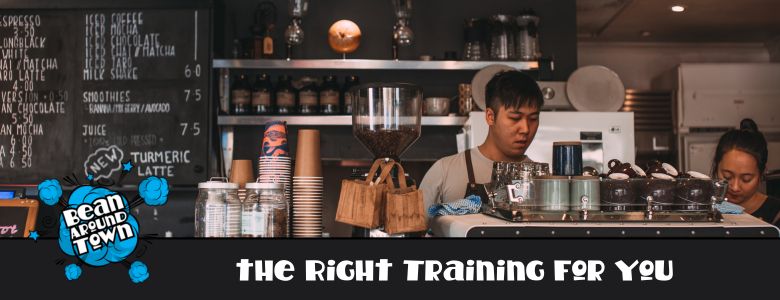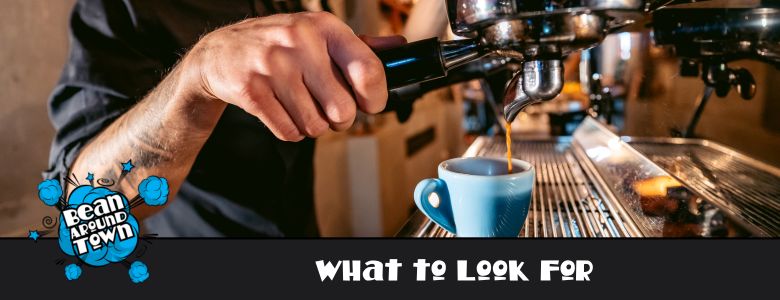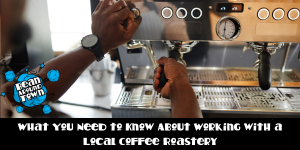So, you’re thinking about diving into the exciting world of coffee? It’s a good choice, and learning how to get barista training can set you on a path to an exciting career. But where do you even begin with how to get barista training?
Well, relax. This guide covers everything from understanding the different training options available to acing your first barista job interview. Grab a cuppa or an espresso coffee and let’s get started.
Table of Contents
Types of Barista Training
There are many barista courses, each catering to different levels of experience and desired outcomes. Let’s take a look.
Short Courses
Ideal for beginners, these courses, often lasting a few hours to a day, provide a great introduction to the world of coffee. They cover essentials such as:
Coffee knowledge: Origin, types, and flavour profiles.
Espresso machine basics: Operation, cleaning, and maintenance.
Milk steaming and frothing techniques
Basic latte art.
How to serve espresso coffee
You can find short courses offered by specialty coffee shops, training centres, coffee roasters and some TAFE institutions.
Nationally Recognised Training
If you’re serious about a career as a barista, a nationally recognised course is a good step. These courses go beyond the basics and dive into food safety practices, customer service skills, and workplace health and safety.
Completion usually means getting a Statement of Attainment, proving your skills to potential employers. One example of this is a nationally recognised barista course is available that covers additional skills.
Online Courses
Can’t make it to in-person training? That’s no problem. There’s a big variety of online courses for multiple learners seeking flexibility or who prefer to learn at their own pace.
These often combine video lessons, quizzes, and assignments, covering topics similar to those in in-person courses. They may not, however, offer the same hands-on practice you’d find in a traditional setting.
Apprenticeships
An apprenticeship gives you the chance to learn on the job, earning while gaining real-world barista experience. Usually lasting a few years, apprenticeships blend practical experience with structured learning at a TAFE or registered training organisation. They’re a fantastic way to develop all the skills you’ll need for long-term success.
How to Choose the Right Training For You

It’s smart to weigh several factors to make the right decision for your aspirations. Think about the following when choosing a barista course:
Your Level of Commitment
Think about how much time you want to commit to becoming a barista. A short course might be enough if you’re just looking for some fun and want to learn to make cafe-quality coffee at home. However, if you’re ready to go all-in on a career, an apprenticeship or nationally recognised training is likely your best choice.
Learning Style
Do you like a structured learning environment? Or do you thrive in hands-on settings, getting stuck in straight away? Choosing a format that aligns with how you best absorb new skills will make the learning experience more satisfying.
Budget
Courses vary greatly when it comes to cost. Short courses are often more affordable, while nationally recognised training or apprenticeships represent a more significant financial investment.
Read our guide on how much a barista course costs >>
What to Look for in a Barista Course

Finding the perfect barista training means finding a course that’s right for you. Consider these points:
Accreditation and Reputation
Ensure the training provider has a good reputation and any certification you get is recognised within the industry. This is especially crucial if you’re aiming for professional barista jobs.
Experienced Trainers
Seek out trainers with plenty of industry experience and a passion for coffee. They’re gold when it comes to offering valuable insights and guidance beyond just textbook knowledge.
Class Size
Small classes offer the perfect space for personalised attention and more opportunities to ask questions. Smaller often translates to better, faster learning.
Hands-on Practice
Being able to practice on professional-grade coffee machines makes all the difference. It gives you the confidence to handle any coffee situation thrown your way.
Course Content
Review the curriculum and make sure it matches your needs. If you’re interested in mastering latte art or learning the intricate processes behind roasting your own beans, ensure the course covers those too.

While learning how to get barista training and going through training is vital, here’s a little glimpse at some fundamental barista skills you’ll acquire:
Technical Skills
Espresso extraction.
Milk steaming and frothing techniques.
Latte art pouring.
Coffee brewing methods.
Coffee machine operation and maintenance.
Customer Service
Greeting and interacting with customers.
Providing knowledgeable information on different coffees.
Creating a welcoming atmosphere.
Other Skills
Time management.
Teamwork.
Read our guide on Essential Barista skills >
Frequently Asked Questions – How to Get Barista Training
How do I train myself to be a barista?
While formal training offers structured learning and recognised qualifications, many aspiring baristas hone their skills independently. Invest in a good espresso machine and grinder to train yourself and learn the art of extraction and master milk-steaming techniques.
How much does it cost for barista training?
The cost can vary based on the course type and provider. A short, non-accredited course might range from $50 to $200. Nationally accredited training is more comprehensive, generally costing between $400 and $1000 or more. Online barista courses can offer a more affordable route, typically costing between $50 to $300.
How long is training for a barista?
A short barista course generally ranges from a few hours to a full day. Accredited barista training courses might involve a commitment of around 3 to 5 days or longer, encompassing both theoretical and practical training aspects.
How long is a barista course in Australia?
The duration depends on your chosen training path. A short introductory course often spans a few hours to a day. Accredited barista training courses tend to demand a more extensive time commitment. They generally run between a few days to a week. In contrast, an apprenticeship can stretch for a few years, giving trainees comprehensive, hands-on experience.
Conclusion
Learning how to get barista training is about more than making a good cuppa—it’s a ticket into the heart of a thriving industry. Armed with the right skills and a passion for coffee, you could soon find yourself working in a buzzing cafe. Go on, give it a shot.






